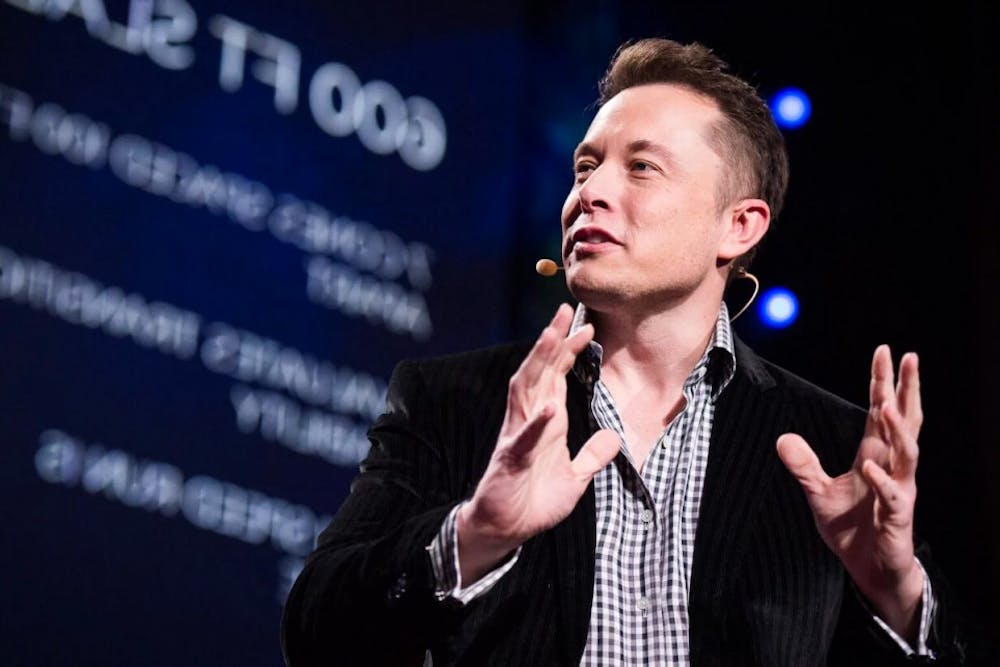Tech salaries in Philadelphia increased faster than in any other city in the United States. In Penn’s yearly career survey for the Class of 2021 graduates, 14% of graduates went into tech, which trailed only financial services and consulting. All of this plus the aggressive pre-professional culture at Penn certainly make careers in tech seem incredibly enticing.
Prestige and profitability cannot be understated as incentives for a career in tech. However, another reason why many college students pursue careers in tech is because they fall for this notion that Silicon Valley and tech companies are where the most cutting-edge innovation is taking place. This narrative is upheld by tech firms’ futuristic campuses and work environments, and idealistic but vague mission statements using phrases such as “passion for invention”, “community”, and “sustainability.” This is furthered by the trend of American tech giant CEOs such as Jeff Bezos, Mark Zuckerberg, and — Penn’s own alumnus — Elon Musk being lauded as both geniuses and philanthropists who are humanity’s greatest hope to save the world.
Optimistic college students are oftentimes the perfect prey for these pretenses, and we are here to warn Penn students that profiteering tech firms are disguising themselves as altruistic innovators.
The notion that you will be working on great innovations by joining the for-profit tech industry is a complete myth. Every major technology in the iPhone, including GPS, touchscreen, and the internet, was actually actually funded and created by the government or government-funded research institutions. Silicon Valley CEOs love to proclaim how their innovation was self-funded and solely a result of their own wits, yet Tesla, Apple, and Google have received massive grants from the government. The truth is that in order for real innovation to take place, risks need to be taken. The venture capitalist model that Silicon Valley’s companies use for funding requires returns on investments in a short period of time; most research and development into truly new and not-yet-understood technologies takes much longer.
Therefore, what software developers really spend their time doing is whatever is profitable for their company; this rarely aligns with true innovation or positive change in the world. This includes maintaining shoddy, pointless code or code bloat, which inspired a whole category of “bullshit jobs” in anthropologist David Graeber’s renowned book "Bullshit Jobs," known as duct-tapers, who maintain, cover up, or apologize for faulty systems.
Currently, one of the most lucrative business models for these tech firms is figuring out how to better extract data from consumers. This is done by software developers working tirelessly on ways to get consumers to spend more time on their devices. This obsession with consumer data has culminated in the Cambridge Analytica data breach scandal and the Metaverse, an all-encompassing virtual reality meant to get you to spend all your waking hours making Facebook money.
The devastating impact of tech companies extends to their bolstering of the military industrial complex, and not to mention their environmental impact as well. We rarely think of the tech industry as being a huge polluter, but tech companies strategically undercount their emissions, invest profits in fossil fuels, and buy up renewable energy credits instead of replacing existing fossil fuel emissions with renewable energy.
Finally, there’s worker exploitation. Silicon Valley jobs might seem stable and cushy from the way they are portrayed, but these tech firms’ sole goal is to extract as much labor out of their employees as possible. This has resulted in toxic work environments, and high levels of job dissatisfaction, and mental-health issues.
Given how high the cost of living is in the major tech cities, the pay is often still inadequate. Since the pandemic, many tech workers have sought out remote work as a way to improve work-life balance and to save money. To combat this, Google plans to build a town for workers to live in, work, and shop. Google's planned town is reminiscent of company towns from the Gilded Age, where the convenience of an all-in-one deal was overshadowed by exorbitant prices from monopolization, isolation from the outside world, and a mundane daily lifestyle reminiscent of "The Truman Show." Although Google is just one company, their company town is a perfect example of how tech firms use aggressive tactics disguised as worker benefits to control workers’ lives and extract more work out of their employees.
Penn students seeking innovative careers in tech have a huge array of options outside of Big Tech, from medical research to using AI and tech to study climate change, and these jobs are contributing a lot more to the humanitarian, technologically advanced future for-profit tech firms promise.
True positive innovation is rarely done in Silicon Valley, whether through the startup route or in established Big Tech firms. This pervasive notion that true social and economic change can be achieved while profits are prioritized is a lie. Therefore, we strongly urge Penn students to avoid the Big Tech ruse, as you will be overworked, underpaid, and exploited to make profits for a tech giant that is endangering society.
Penn Young Democratic Socialists of America (YDSA) is the premier student-run leftist organization on Penn’s campus. They can be reached at ydsapenn@gmail.com.









